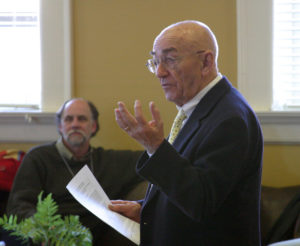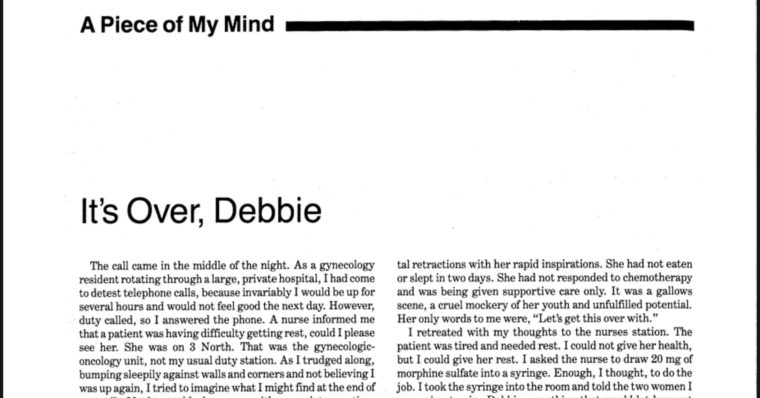This piece was published in the Journal of the American Medical Association in 1988 and inspired a firestorm of responses. Dr. John Lachs proposed this as a one-sheet document for a conversation that he and Executive Director Weber organized in Oxford, MS, in 2008 on “Ethics at the End of Life.” This one-sheet document was hugely successful for spurring inspired yet civil conversation about values at the end of life, as well as whether there should be freedom in end-of-life decision-making, what sort, and what kinds of policies make sense for end-of-life circumstances. The JAMA withheld the name of the author this piece by request.
The document is available on the JAMA Web site as an image file. For a printable, searchable (OCR’d) version, click here, on the Adobe PDF logo on right, or on the image here below:







